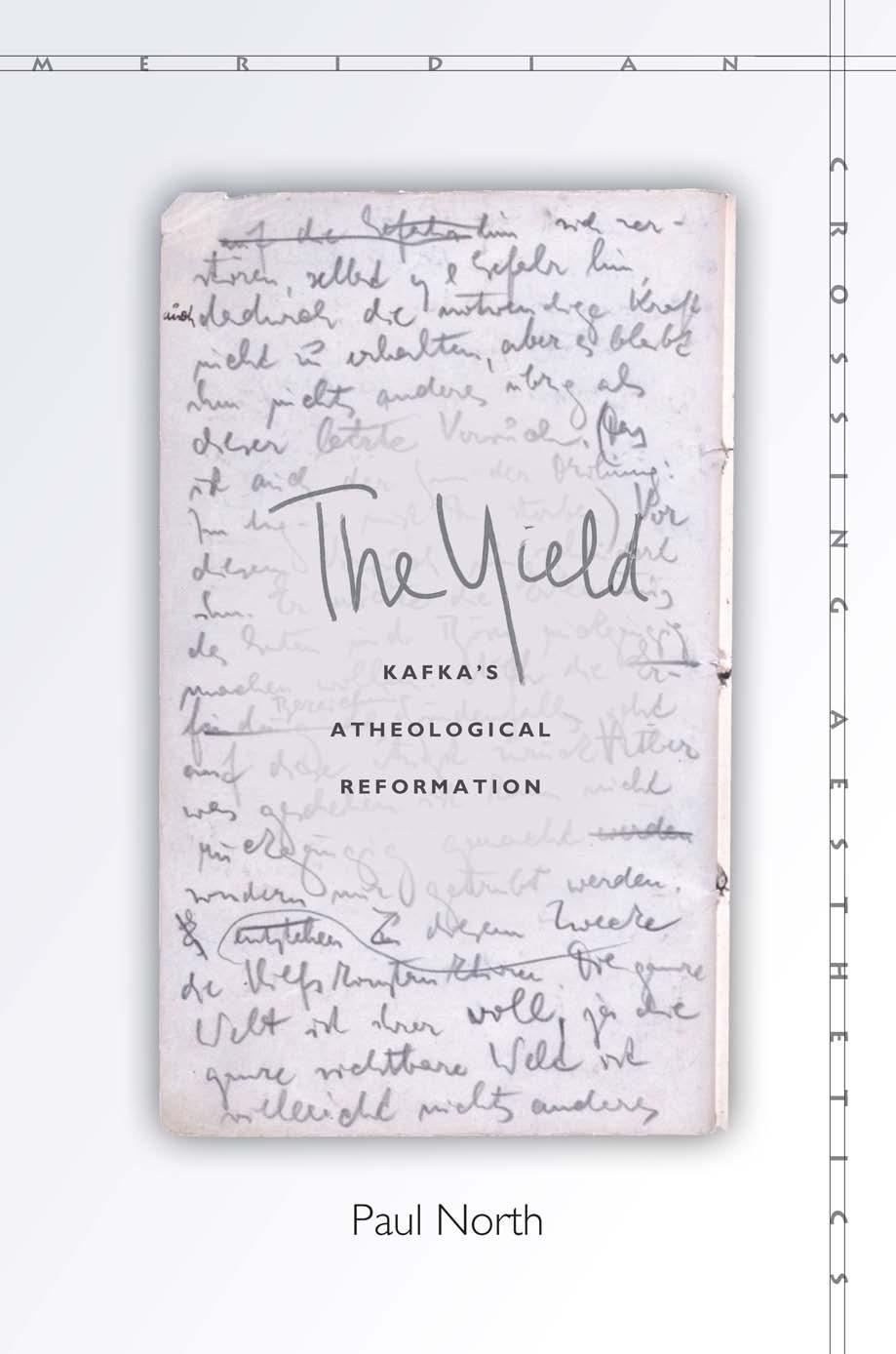The Yield: Kafka's Atheological Reformation by Paul North

Author:Paul North [North, Paul]
Language: eng
Format: epub, pdf
Publisher: Stanford University Press
Published: 2015-02-21T16:00:00+00:00
27. The Illuminated Corpse
An artist who could accomplish this would be in possession of special powers. After all, she would be different from all other artists and non-artists, living and dead. She would neither make images nor break them, only diminish their attraction. The ability to muddy images without making new ones would make this artist one figure in the world not susceptible to images. She would operate in a strong sense outside the limitations of the world. Social ideals would not appeal to her. Even death, image of images, would not catch her in its wily snares. In one way of thinking, this artist overcomes herself, overcomes art, even overcomes death, by means of what Nietzsche in a late note called the “primordial artistic force.” No doubt a species of the will to power. And yet what if this too were an image? What if the artist too had to be muddied up, darkened, drained of art’s idealizations and the call to become and overcome? What if the new law had to be applied to art itself, and the “victorious energy of the artist,” “a surplus and overflow of flourishing corporeality into the world of images and wishes,”37 were in fact the most seductive image of all and hardest to extinguish? How would one begin to drain this last tenacious, sacred image—the artist—of its promise?
There is a special case of death, the death that happens to a writer, or rather the death out of which a writer wholly consists while living. Kafka describes aspects of this special case of death in a letter to Max Brod. Enough has been written about Kafka and Schriftstellersein, “being-a-writer,” to satisfy all writers everywhere. His writerly being is treated often and best by Maurice Blanchot, who, in his lifelong investigation into the values of writing, first as a fiction writer and later as a devotee of the ordeal of writing about writing, kept returning to Kafka as exemplum, prototype, enigma, and, what concerns us here, as a rich fund of thoughts on the “primordial artistic force” that writing possesses through its special relationship to death. Death and writing, Blanchot’s great twin themes, he positions very near to Kafka in “The Last Word,” a chapter of his book on friendship, L’amitié, which explores the limits of Freundsein. An exemplary limit crosses the friendship between Kafka and Max Brod. Nothing is truer than that these two saw writing differently. Blanchot concentrates his analysis on Kafka’s letters, the richest and most candid of which, on the topic of death and writing, is addressed of course to Brod. Blanchot has the unparalleled insight that Kafka’s letters to Brod differ from his letters to almost everyone else, in that he never debases himself before Brod, never deprecates himself.38 The letters are proud volleys in a real struggle, in which Kafka never loosens his grip on his weapons, and the letter on death and writing is no exception.
Overall, Kafka’s letters provide Blanchot with “a better sense of the curve
Download
The Yield: Kafka's Atheological Reformation by Paul North.pdf
This site does not store any files on its server. We only index and link to content provided by other sites. Please contact the content providers to delete copyright contents if any and email us, we'll remove relevant links or contents immediately.
| Deconstruction | Existentialism |
| Humanism | Phenomenology |
| Pragmatism | Rationalism |
| Structuralism | Transcendentalism |
| Utilitarianism |
The remains of the day by Kazuo Ishiguro(8975)
Tools of Titans by Timothy Ferriss(8365)
Giovanni's Room by James Baldwin(7326)
The Black Swan by Nassim Nicholas Taleb(7106)
Inner Engineering: A Yogi's Guide to Joy by Sadhguru(6785)
The Way of Zen by Alan W. Watts(6600)
Asking the Right Questions: A Guide to Critical Thinking by M. Neil Browne & Stuart M. Keeley(5759)
The Power of Now: A Guide to Spiritual Enlightenment by Eckhart Tolle(5752)
The Six Wives Of Henry VIII (WOMEN IN HISTORY) by Fraser Antonia(5497)
Astrophysics for People in a Hurry by Neil DeGrasse Tyson(5182)
Housekeeping by Marilynne Robinson(4436)
12 Rules for Life by Jordan B. Peterson(4299)
Double Down (Diary of a Wimpy Kid Book 11) by Jeff Kinney(4261)
Ikigai by Héctor García & Francesc Miralles(4246)
The Ethical Slut by Janet W. Hardy(4242)
Skin in the Game by Nassim Nicholas Taleb(4239)
The Art of Happiness by The Dalai Lama(4125)
Skin in the Game: Hidden Asymmetries in Daily Life by Nassim Nicholas Taleb(3989)
Walking by Henry David Thoreau(3953)
